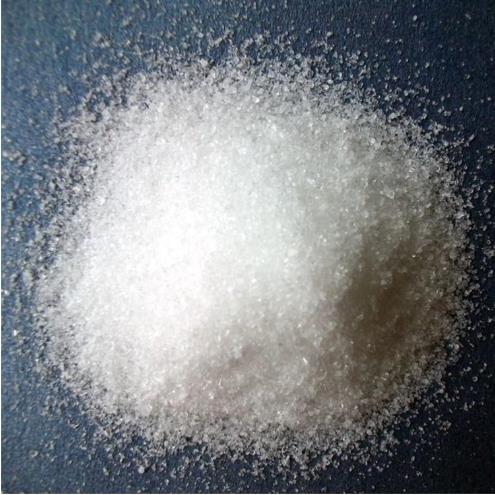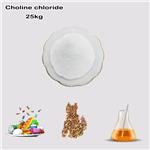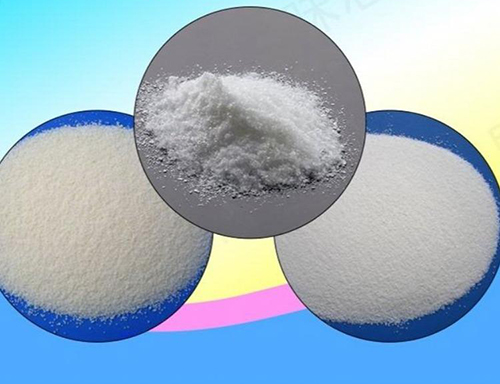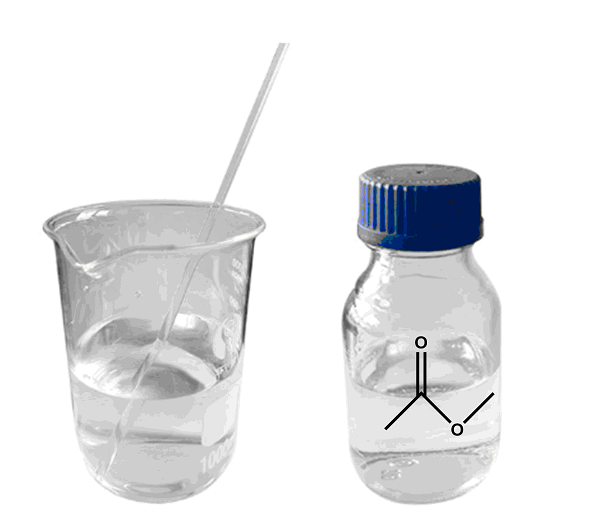Choline Chloride: An Essential Chemical for Various Industries
Introduction
Choline chloride (C5H14NO·Cl), having a linear formula of (CH3)3N(Cl)CH2CH2OH, with a molecular weight of 139.62 g/mol, and also chemically known as (2-hydroxyethyl) trimethylammonium chloride, is also a quaternary ammonium compound with a choline cation and chloride anion bearing the IUPAC name 2-hydroxyethyl (trimethyl) azanium chloride. It is a white crystalline powder, strongly alkaline substance known to be an essential vitamin (grouped under the B-complex family) for humans and terrestrial and aquatic animals, including fish[1].

Biological functions
Choline and its metabolites induce(s) an emergent role in maintaining the structural integrity and signalling functions of the cell membranes of the animal body; it is recorded as one of the significant sources of methyl groups in the diet (e.g., betaine, responsible in methylation of homocysteine to form methionine, also known as renal osmolyte). Other cellular functions such as lipid transport or metabolism, cholinergic neurotransmission, and transmembrane signalling are also influenced by the activities of choline. It is also considered responsible for apoptotic signalling in neurons and liver cells and the transport of lipoproteins from hepatic cells, thus preventing hepatic carcinogenesis. As a mandatory item of the human diet, it is essential to be an obligatory food constituent, and it has profuse nutritional value for mammals. Similar to humans, it also acts as a growth promoter in animals (chicks) and for fishes when supplemented with a requisite and balanced feeding. Its deficiency leads to muscle damage, liver damage, fatty liver, and elevated liver enzymes in blood and tissues, and its abundance in the animal body may reduce the chances of formation of defective neural tubes and cleft palates and also increase brain development.
The efficacy of choline in many animals, including fish, has been reported by various researchers stating the presence of choline in the diet showed improved growth of the spleen and head kidney of Cyprinus carpio. In contrast, a deficiency of choline showed growth retardation, poor survival rate, poor feed efficiency, and elevated liver lipid concentration in yellow perch (Perca flavescens) and juvenile cobia (Rachycentron canadum), and poor digestion and fewer absorption capacities in fishes. Moreover, the supplementation of such lipotropic factor in the fish diet showed a higher efficacy with respect to reduced lactate dehydrogenase (LDH), alanine amino transaminase (ALT), and alkaline phosphatase (ALP) activities by mitigating endosulfan-induced stress, and increased body crude protein content of juvenile Atlantic salmon (S. salar) and grass shrimp (P. monodon) and also in juvenile Jian carp Cyprinus carpio respectively. Nevertheless, the practice of applying choline (choline chloride: CC) directly into the pond water for fish culture of carp and air-breathing fish in a semi-intensive fish culture system is still unidentified. Furthermore, traditionally, fish farmers are used to and habituated to using choline chloride along with fish feed (mainly floating fish feed) as their regular practice for the enhancement of growth performance and yield.
Uses: Novel choline-chloride-based deep-eutectic-solvents with renewable hydrogen bond donors
Choline chloride (ChCl) has been combined with renewable hydrogen bond donors (HBD) to form novel deep eutectic solvents (DES) with melting points lower than 100 °C. In some cases (e.g. sorbitol or isosorbide as HBDs), chiral DES can be easily produced. Moreover, the addition of glycerol decreases the viscosity of DES significantly[2].
In eutectic mixtures, ChCl functions as HBA with a variety of HBD, such as urea, alcohols, sugars, hydroxyacids, and aminoacids, due to the simple preparation, nontoxic nature, good biodegradability, and preservation of bioactivities of target compounds. Most interestingly, ChCl-based DES offers the advantage of being modulated in viscosity, pH, and polarity for its applications in health-related areas, such as pharmaceuticals, foods, and cosmetics. The main limitations of these solvents are the significantly high viscosities and densities in comparison with water and common organic solvents, which can reduce mass and energy transfer during chemical reactions; water or glycerol addition and mild heating contribute to the disruption of the hydrogen-bond network and weaken the intermolecular forces, although keeping the solvent supramolecular structure[3].
References:
[1] SUBHAS DAS, APURBA RATAN GHOSH*. Choline Chloride Induces Growth Performance of Indian Major Carps and Air-Breathing Fish Species with an Outcome of Quality Food-Fish under a Semi-Intensive Culture System: A Biochemical Investigation[J]. ACS Omega, 2022, 7 17: 14402-15257. DOI:10.1021/acsomega.1c06533.[2] MAUGERI Z, DE MARíA P D. Novel choline-chloride-based deep-eutectic-solvents with renewable hydrogen bond donors: levulinic acid and sugar-based polyols[J]. RSC Advances, 2011, 2: Page 353 to 698. DOI:10.1039/C1RA00630D.
[3] ROSA AMOROSO C M Frank Hollmann. Choline Chloride-Based DES as Solvents/Catalysts/Chemical Donors in Pharmaceutical Synthesis.[J]. ACS Applied Energy Materials, 2021. DOI:10.3390/molecules26206286.
You may like
Related articles And Qustion
See also
Lastest Price from Choline chloride manufacturers

US $0.00-0.00/kg2025-09-30
- CAS:
- 67-48-1
- Min. Order:
- 1kg
- Purity:
- 98.0%-100.5%;FCCV
- Supply Ability:
- 10 TONS

US $1200.00-1100.00/ton2025-09-25
- CAS:
- 67-48-1
- Min. Order:
- 1ton
- Purity:
- 99%
- Supply Ability:
- 1000T/M



